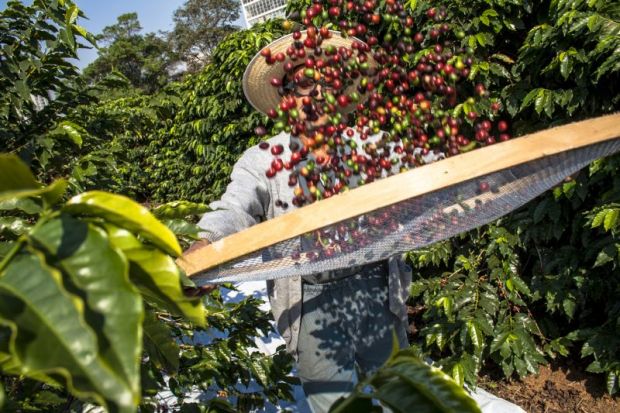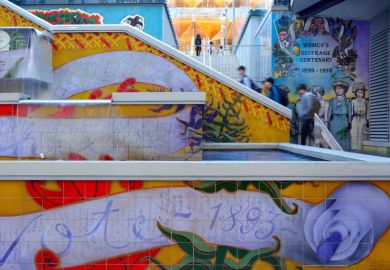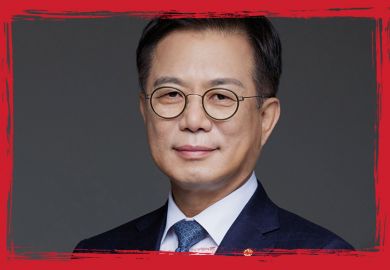Browse the full Impact Rankings 2020 results
Since the start of the current century, research universities worldwide have been deeply concerned with public engagement, as well as with their own position within society. Despite garnering a high degree of respect, university leaders have realised that most people do not understand the social role of their institutions.
The question arises: why should taxpayers support research universities? It is necessary to demonstrate that academic institutions can solve unexpected problems. A deeper and closer relationship with the public is vital for such institutions to make their activities better understood and appreciated and to establish respect and backing among communities. This support is a keystone for the existence of universities today.
This closer relationship and collaboration, with the aim of answering public needs, has been known as the third mission of universities – in addition to education and research activities. It entails equal, knowledge-based and mutually beneficial partnerships among universities and the main players of society as a whole.
The Times Higher Education Impact Rankings, based on the 17 United Nations Sustainable Development Goals (SDGs), provide a unique opportunity for universities to showcase their activities that contribute towards building a more sustainable and equitable society. The University of São Paulo (USP) is honoured to participate in this evaluation.
USP’s foundation stone was laid in 1827 with the inauguration of the Faculty of Law, and it was established as a university in 1934. It is now a large and comprehensive institution located in the state of São Paulo, comprising almost 90,000 students – one-third of whom are research graduate students – and about 6,000 faculty members. From the very beginning, according to its by-laws, USP has operated as a tool for social improvement. This 80-year-long practice has helped us to succeed in accomplishing our third mission.
View our interactive map to see Impact Rankings performance by institution, region and national income level
During this global pandemic – a unique moment for humankind – universities ought to be even closer to society and demonstrating their role in mitigating public suffering. USP’s response to the current challenges was immediate. Almost 200 research groups adapted ongoing research or started new work related to Covid-19. Some of these initiatives include, but are not limited to, the development of vaccines, low-cost clinical ventilators, complete viral genome sequencing and lab reproductions of the new coronavirus.
Almost 20 laboratory groups have joined efforts to organise five diagnostic centres, which are able to perform 1,500 Covid-19 tests a day, thanks to the invaluable help of volunteers. USP owns two hospitals and runs another two, with a total of 3,000 beds. These hospitals were adapted within a two-week period to be able to admit Covid-19 patients in isolated wards.
The enormous effort of the USP community in offering support to the public throughout the pandemic attracted the attention of the mainstream media, which, unprecedentedly, has been broadcasting the work of the institution and its faculty members. Meanwhile, the USP website, respected as a reliable source of information, has been experiencing a significant increase in the number of daily visitors.
Regarding the UN SDGs, USP is deeply involved in conducting research and educational activities related to all 17 goals. The university administration recently decided to honour this commitment by hiring new academics tasked with addressing the SDGs within departments and schools.
USP’s research achievements include increasing the production of sustainable and affordable crops, which has reduced malnutrition in Brazil and elsewhere. We have also implemented initiatives related to environmental conservation in response to new federal government policies; Brazil is known for its sustainable energy production, and our goal is to decrease even further our investment in fossil fuels. Meanwhile, we have made great strides in improving our inclusion of students from all socio-economic strata. In 2021, 50 per cent of our entering students will come from public schools, and 37.5 per cent will be racial minorities.
I applaud THE and its ongoing initiative, which fulfils a very important gap while linking universities to the general public around the globe.
Vahan Agopyan is rector of the University of São Paulo.
Register to continue
Why register?
- Registration is free and only takes a moment
- Once registered, you can read 3 articles a month
- Sign up for our newsletter
Subscribe
Or subscribe for unlimited access to:
- Unlimited access to news, views, insights & reviews
- Digital editions
- Digital access to THE’s university and college rankings analysis
Already registered or a current subscriber? Login









